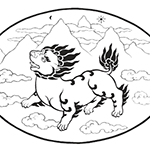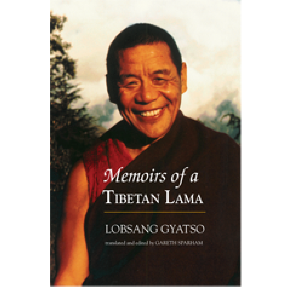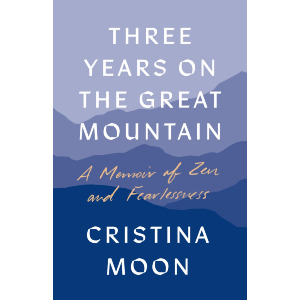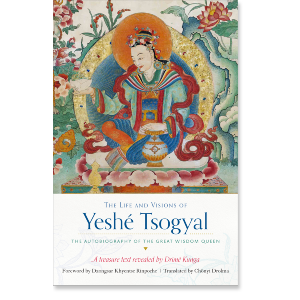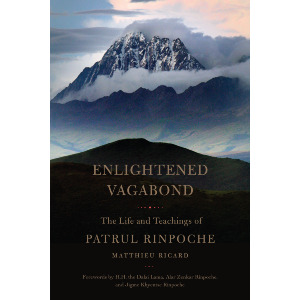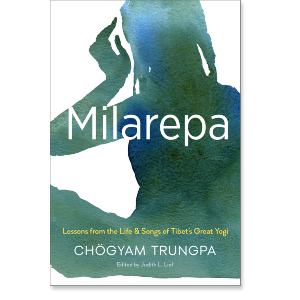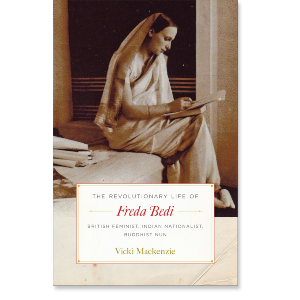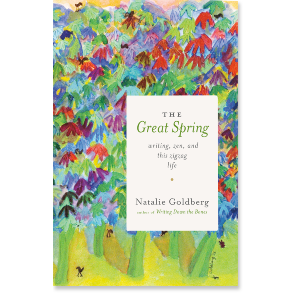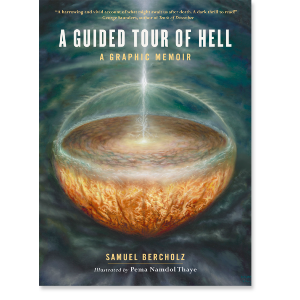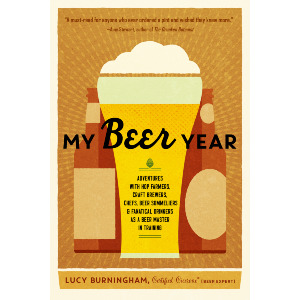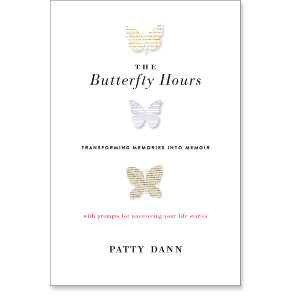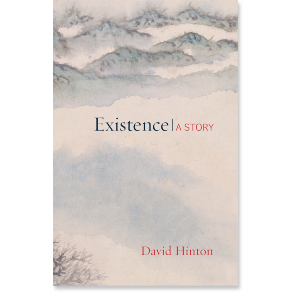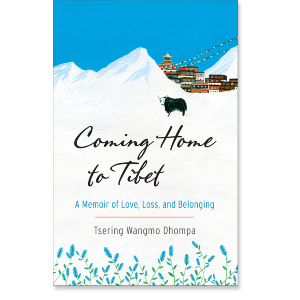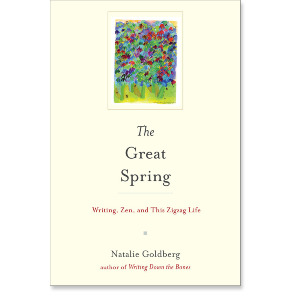| The following article is from the Spring, 1998 issue of the Snow Lion Newsletter and is for historical reference only. You can see this in context of the original newsletter here. |
By Ven. Lobsang Gyatso
Translated and edited by Gareth Sparham
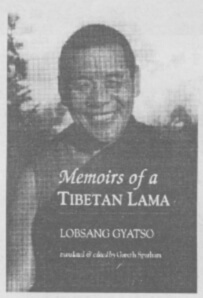
In 1995 Gareth Sparham suggested to Lobsang Gyatso, his long-time teacher and friend, that he record his life story. Lobsang Gyatso's life in Kham and central Tibet as he tells it is the story of an ordinary man going through what to him was an ordinary life, dealing openly with the pettiness and violence in the monasteries, the details of the economic system and the hopes and aspirations of a man trying to live up to higher ideals. It is also the story of the fall of Tibet seen through the eyes of a patriot and fearless author. Always outspoken, the problem with Tibetans, he writes, was their overblown belief in Buddhism and in the specialness of their country. Although he had only told his story as far as 1962 before he was murdered in 1997, the book constitutes a moving statement against sectarianism and rigid conformity. It rings out as a plea for recognizing the unique culture and people of Tibet as they are, not as part of myth, and as a record of a life that embodied Buddhist truth.
Lobsang Gyatso was born in south-eastern Tibet in 1928. He studied and occupied a number of low-level administrative positions in Drepung monastery until fleeing as a refugee in 1959. Intellectually gifted, he became a teacher of Tibetan refugee children in a school in Mussorie, leaving there in the early 1970s to found the Institute Buddhist Dialectics. Under his direction the Institute Buddhist Dialectics grew into one of the foremost institutions of Tibetan culture in exile, adapting continually . to the changing reality of Tibetan youth. His vision was of a school that retained what was good in monastic education while embracing parts of the secular.
Lobsang Gyatso was an unusual mix of the traditional and the modem. He was an unswerving follower of the Dalai Lama but scoffed at the posturing of incarnate lamas and never went to public tantric teachings. He was a product of Drepung monastery but was not loved by Gelukpa luminaries. He never learned English and had no interest in Dharma centers, yet founded an Institute which attracted a number of western practitioners and academics.
Lobsang Gyatso was murdered, in his room at the Buddhist Dialectic Institute with two of his students, in the late winter of 1997. The motive is thought to involve his unswerving support for the Dalai Lama's views.
Ven. Dr. Gareth Sparham received an honors degree in English literature from McGill University in 1970. After a brief period as a school teacher he began to study Buddhism in Nepal and India. He followed the traditional curriculum at the Buddhist Dialectic Institute in Dharamsala from 1974 until 1982 when he returned to Canada, receiving a doctorate in Asian Studies from the University of British Columbia in 1989. After teaching briefly he returned to the Buddhist Dialectic Institute in Dharamsala where he lived until 1997. He is presently a visiting lecturer at the L'niversity of Tasmania.
Ven. Dr. Sparham's published works, among others, include a translation of the Tibetan version of the lTdanavarga and a study of Yogacara Buddhism in Tibet. He is presently engaged in translating a series of texts from Indian and Tibetan Perfection of Wisdom literature. Dr. Sparham has been a monk since 1974.
The following is the introduction to Memoirs of a Tibetan Lama.
The Memoirs of a Tibetan Lama, published here for the first time, is a Tibetan namthara life story as Buddhist teachingwritten in the candid style of a tell-all autobiography by the famous Tibetan Buddhist teacher Lobsang Gyatso. Inevitably the life of Lobsang Gyatso will be seen through the lens of his death. He was born in Kham, eastern Tibet, about seventy years ago. Called Drang-te (Beggar's Rubbish) as a boy, Nag-po-pa (Fleabag) or Choo-churwa (after his village in Kham) by his classmates, and Gen-la (a mix of comrade and teacher) by his students and friends, he was killed in the Buddhist Dialectic Institute in Dharamsala, India, next door to the Dalai Lama, in February 1997 along with two of his students.
Lobsang Gyatso (Ocean of Fine Thoughts, his monastic name) was recording these memoirs at the time of his death. A master raconteur with an eye for human foibles and a wicked sense of humor, he steps out of his remembrances as a roly-poly delinquent with a fierce sense of justice, a love of pork and beer, a dangerous temper, and a love of guns and knives. The Memoirs takes the reader up to Lobsang Gyatso's first years in India, ending in about 1963. Narrated in an unusually realistic style, his account of his early life as herder and ben-chung (young monk or lout) in the semi-nomadic community in eastern Tibet where he grew up, his journey to Lhasa, and his life as a monk in Drepung (at that time the largest monastery in the world) recreate what was special in old Tibetthe Shangrila of western imagination but with an openness and realism that is sometimes disturbing. He describes a country and a people as they really were, and he describes himself honestly as an ordinary man, with all his failings, caught between the pull of the world and the tranquility of spiritual life.
Lobsang Gyatso left his homeland in Kham to study in central Tibet at about the age of seventeen, entering Phukhang house, in the Loseling section of Drepung monastery in 1945. He was at first little more than a debt collector for the house gum. but finally was taken in hand by the saintly Gen Yaro who for seven years led him through the traditional monastic curriculum. He became well known in Drepung as a capable debater and he spent long periods, during study sessions, in the caves above Drepung in retreat. Later he would say that whatever personal and intellectual honesty he had stemmed from his spiritual training during this period. In 1954 Lobsang Gyatso became the Phukhang house guru and demonstrated a talent for administration and financial matters; in 1956 he became the house grain keeper, a position he held until he fled as a refugee to India in 1959.
In 1974 the Dalai Lama and Lobsang Gyatso founded the Buddhist Dialectic Institute in Dharamsala. After some difficult early years it established itself as one of the success stories of the Tibetan exile community. The founding of the Buddhist Dialectic Institute is the work for which Lobsang Gyatso will be best remembered. Unencumbered by past history and unfettered by formal ties, it evolved under the guidance of Lobsang Gyatso into a diverse institution defined only by the wish to properly educate Tibetan youth in exile.
That Lobsang Gyatso was a deeply spiritual man is obvious from these memoirs. His description of his Red Uncle (his first gum), and the gratitude he feels to Gen Yaro (the guru who began to develop his prodigious intellectual talents) evoke memories of famous gums of the past. And his love for Iris home monastery Dondupling in Kham, and for Drepung Loseling in Lhasa is unmistakable. But Lobsang Gyatso writes obliquely. He details his own shortcomings and sillinesses rather than openly describing the excellence of his gums, and he is confident that the grubbiness and even horrors in the monasteries he describes will gently lead the reader to find for him or herself the noble sense of community that was there as well.
Of particular interest is Lobsang Gyatso's detailed description of the Tibetan economy before the Chinese occupation. His eyewitness account of Tibet's market-oriented economy, based on the monasteries as banks, will do much to put to rest once and for all the self-serving myth of Tibet as a feudal land where peasants toiled and the rich lived off the fruits of their labor.
Lobsang Gyatso's memoirs take their place alongside the other records of pre-1959 Tibetan society, the best known of which is the Dalai Lama's My Land and My People. But Lobsang Gyatso's memoirs ar e unique for a narrative style strongly influenced by realism, and for the perspective he brings to his description: that of an ordinary Tibetan. His tragic death at the hands of sectarian fanatics and his willingness to embrace controversial issues head on will ensure his memoirs a lasting place in Tibetan literature.
Lobsang Gyatso's memoirs are characterized by the same humor and fearlessness that he showed in his life. More than anything else, he valued authentic spiritual endeavor, free from hypocrisy and unfettered by mere conformity to mles and ritual, and he was supremely confident that what was authentically good in Tibet and Tibetans, embodied in the Dalai Lama, would prevail. His outspokenness and love of his country and Buddhism are summed up in his memorable line: too much hope in Buddhism and too much hope in the specialness of Tibet.
$29.95 - Paperback

